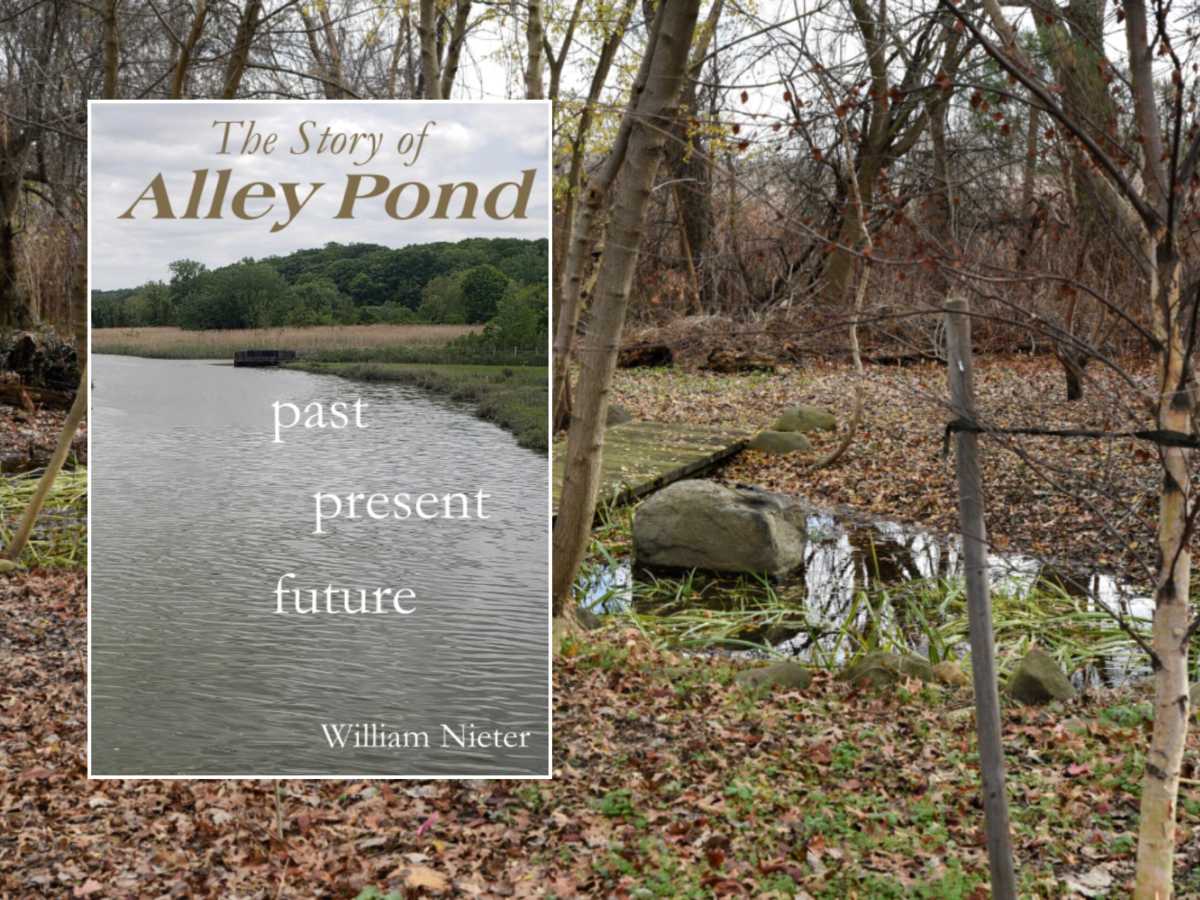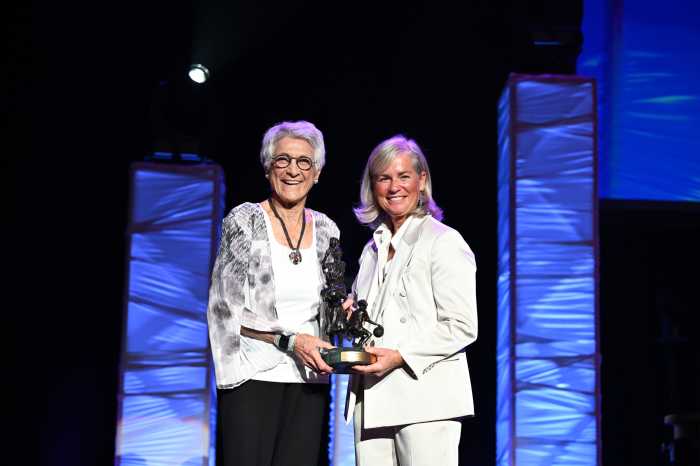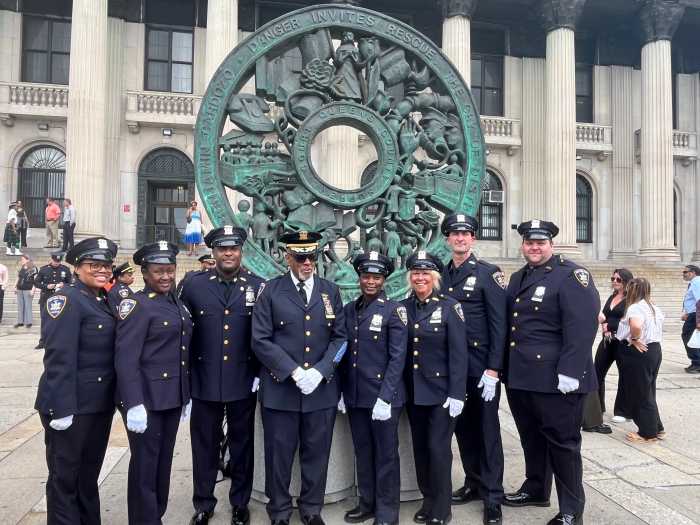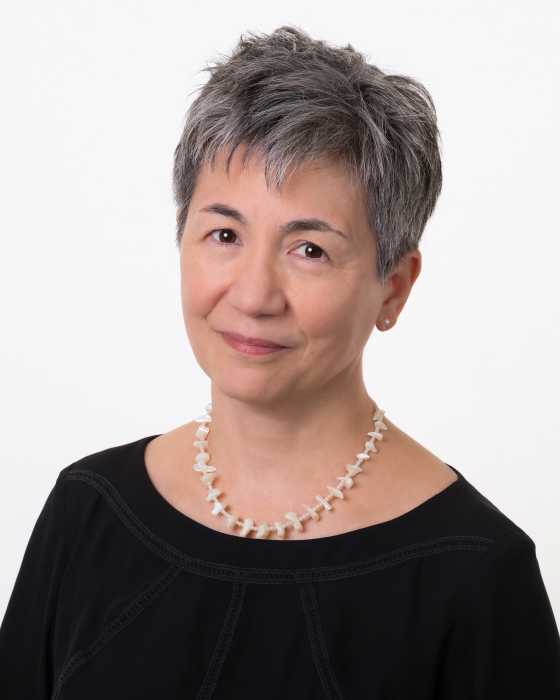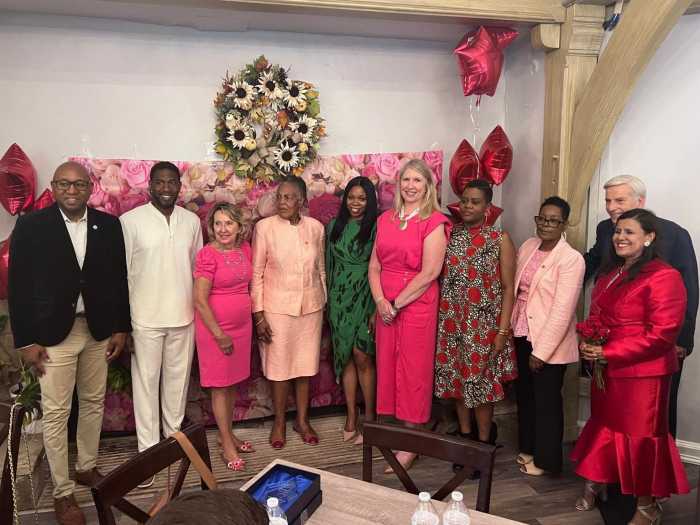The same year that William Nieter began teaching at St. John’s University in 1976, a group of environmentally minded community members opened the original Alley Pond Environmental Center on Northern Boulevard.
Almost five decades later, with the surrounding park and its center unrecognizable from the early days, the idea to write all about it came to him. Nieter’s new book, The Story of Alley Pond: Past Present Future, chronicles the volunteers who continuously showed up with utmost care to rehabilitate and preserve one of the most ecologically unique areas in the city over the course of 11 chapters. Nieter was one of APEC’s first board members and served as president at one point.
After wrapping up his final class, he retired from academia in May 2023. A couple months later, his chronologically structured book filled with original photos he acquired over the years was released through Amazon Publishing. It was the culmination of months spent sifting through public sources at the Queens Public Library, and over a dozen interviews he conducted with those familiar with Alley Pond’s history.
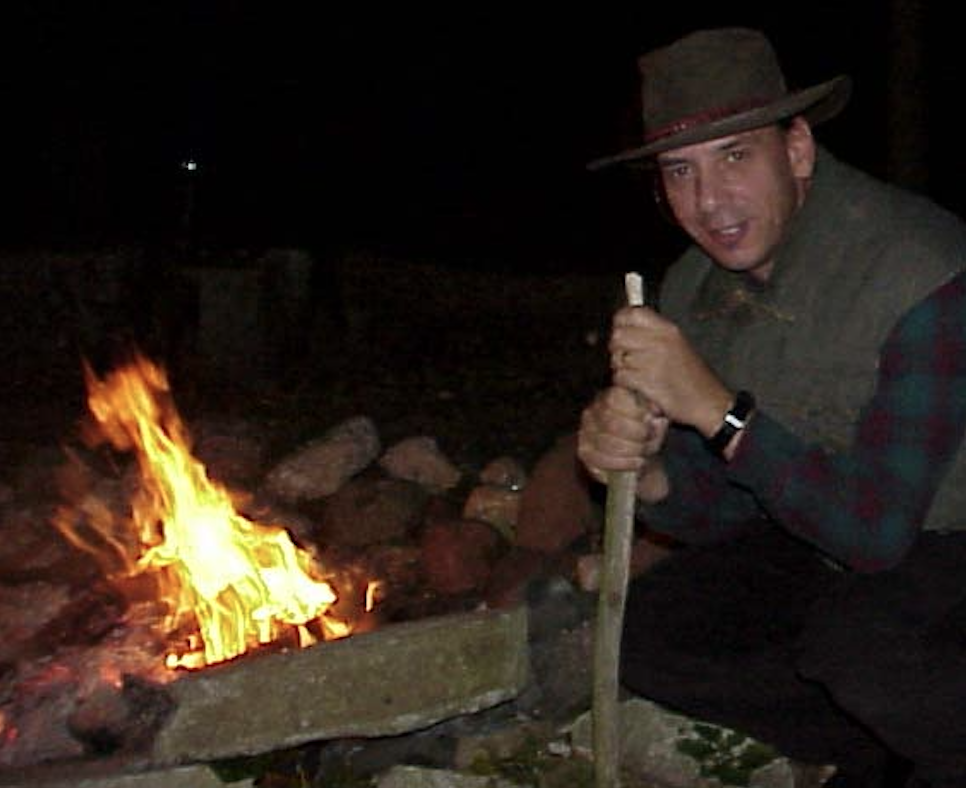
“Everything that happened at APEC was a giant group effort. There was a whole cast of great people, so that’s part of the reason that I wrote it,” said Nieter. “I wanted to sort of give tribute to them and honor them.”
He refers to the founders of the organization, Joan and Hy Rosner, as the greatest people he’s ever met. A chapter is dedicated to the two environmental educators who first envisioned turning the long-neglected area that used to be a construction dumping site into a community resource and educational center.
But Nieter also wanted to inform people of the area’s unique history, noting that many of the center’s current employees and volunteers weren’t even born when the group was formed. He says it’s important for them to learn about the struggles and collective effort it took to transform APEC into what it is today.
He added that especially for the teachers, who bring thousands of students through APEC’s doors on class trips each year, the book can serve as a valuable tool with insights into the diverse ecosystems home to hundreds of bird and wildlife species.
As a professor who taught various introductory and advanced courses on ecology and coastal systems, he brought his students on trips to APEC almost every semester. They would conduct research by profiling the water and sail through Little Neck Bay, which sits at the park’s northernmost edge.
As the Director of Environmental Studies at the university, a position he held for 38 years, Nieler also coordinated internships for students at APEC. Many of his students ended up being environmental educators and professionals themselves.
“I don’t know if other people who don’t know the area would be so interested in it. But I think there’s got to be a million people in northeast Queens that know the park in some way or other,” said Nieter, noting that he doesn’t expect the book to become a financial success.
But he decided that the profits the book does generate will be passed along to APEC as a donation to support the organization.
The first time that he visited Alley Pond Park was as a youth living in Jackson Heights. He recalls his father packing everyone into the car and driving out east to set up for the day in a picnic area.
“It was like being in the country. For a city kid to travel out to eastern Queens in the 1950s, everything was green and open,” said Nieter, who ended up moving to the area in the late 80s and decided it was where he would raise his kids.
Putting the book together was a family effort. His wife, Vicke Nieter, who taught at St. John’s in the English Department, edited the 158-page book and helped him polish it up. And his son, a graphic designer, created the cover.
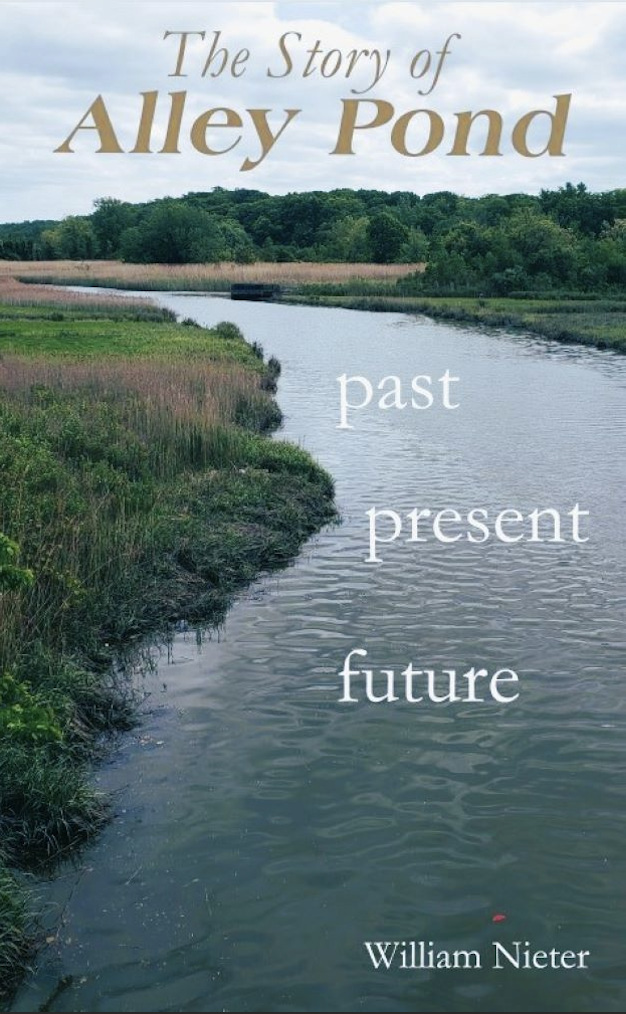
In December, Nieter attended the grand opening of the brand new building now home to APEC alongside dozens of others who watched the center grow over decades.
While he previously served as president and treasurer on the board, today he runs APEC’s advisory council with six others who have a close connection, and care for APEC deeply.
“It really is an amazing thought that the building will carry us into the rest of the 21st century,” said Nieter. “But we still have a lot to do. There’s more environmental problems now than there were when we began with very problematic climate change, and loss of biodiversity. APEC is going to be affected by both of those.”
However, he is optimistic about APEC’s future knowing that it is in the hands of “brilliant” directors, educators and volunteers who are carrying on the legacy.
The Story of Alley Pond: Past Present Future can be purchased on Amazon as a paperback or kindle edition.

